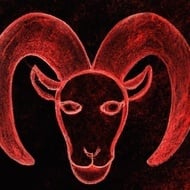About
Fencer and World War II Soviet soldier known for helping to liberate the Auschwitz death camp on January 27, 1945. He survived the battle of Stalingrad and the battle of Kursk, both considered the bloodiest battles on the Eastern Front. He was the last surviving liberator of Auschwitz. As a fencer, he was ranked at the top in the Soviet Union by 1951. He went on to coach the Soviet Union women's national fencing team.
Before Fame
After the war, he studied medicine and became a doctor. It was not until after his medical studies were completed that he pursued his true passion, which was fencing.
Trivia
During the war, he was one of 69 soldiers who survived out of his division of 12,000, and he was wounded three times. At the 1972 Munich Olympics, the women's fencing team that he coached took home two gold medals, two silver medals and three bronze medals. He fused his passion for fencing with his passion for peace, and he promoted the ways in which the sport could be used as a means of diplomacy.
Family Life
He married Zoja Petrova in 1956. They had one son, Sergei. His wife passed away in 2011, and Sergei passed away due to lung cancer in 2017.
Associated With
As a fencer, he is similar to Edoardo Mangiarotti.










